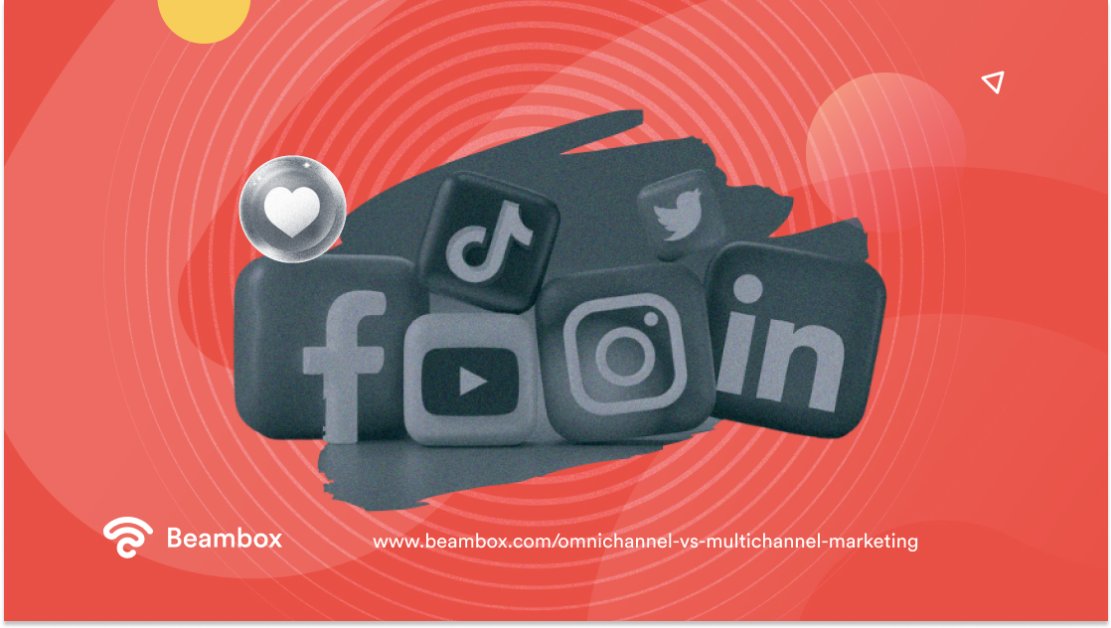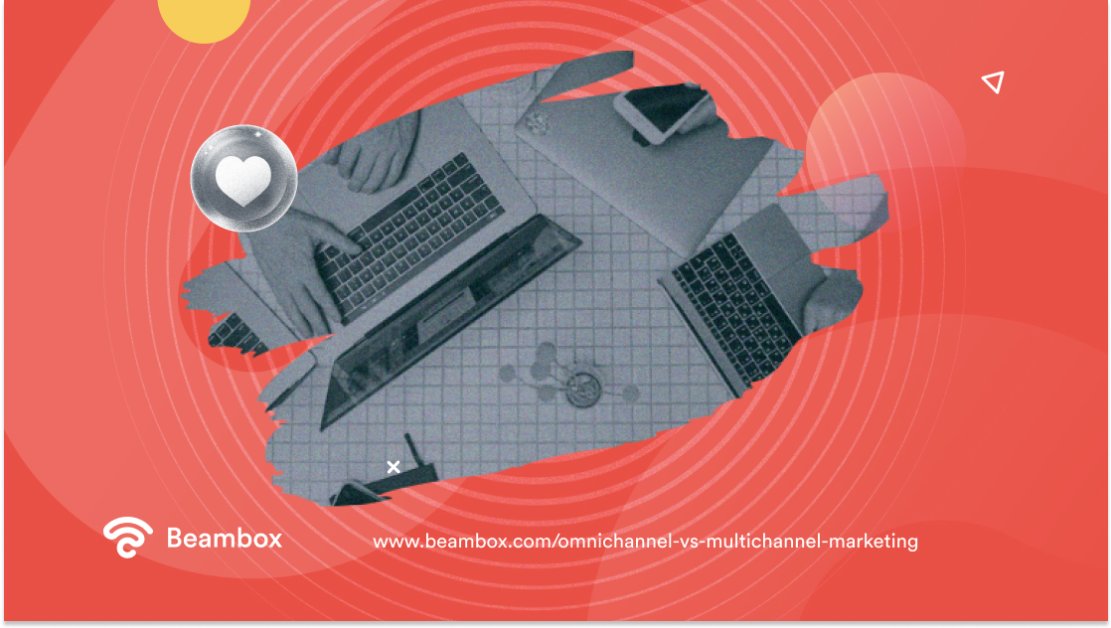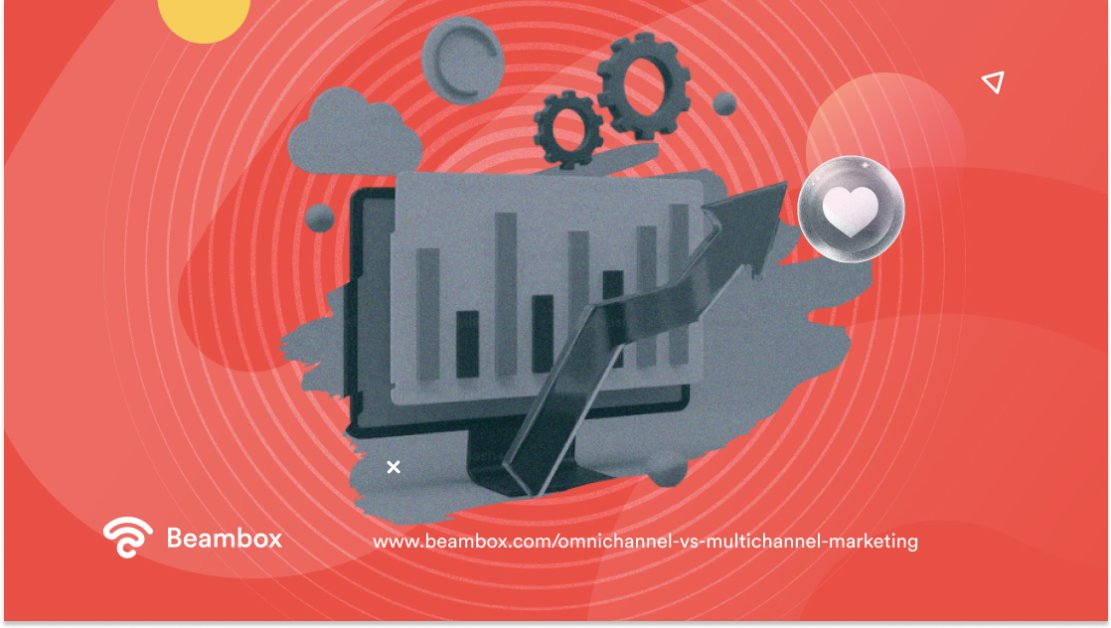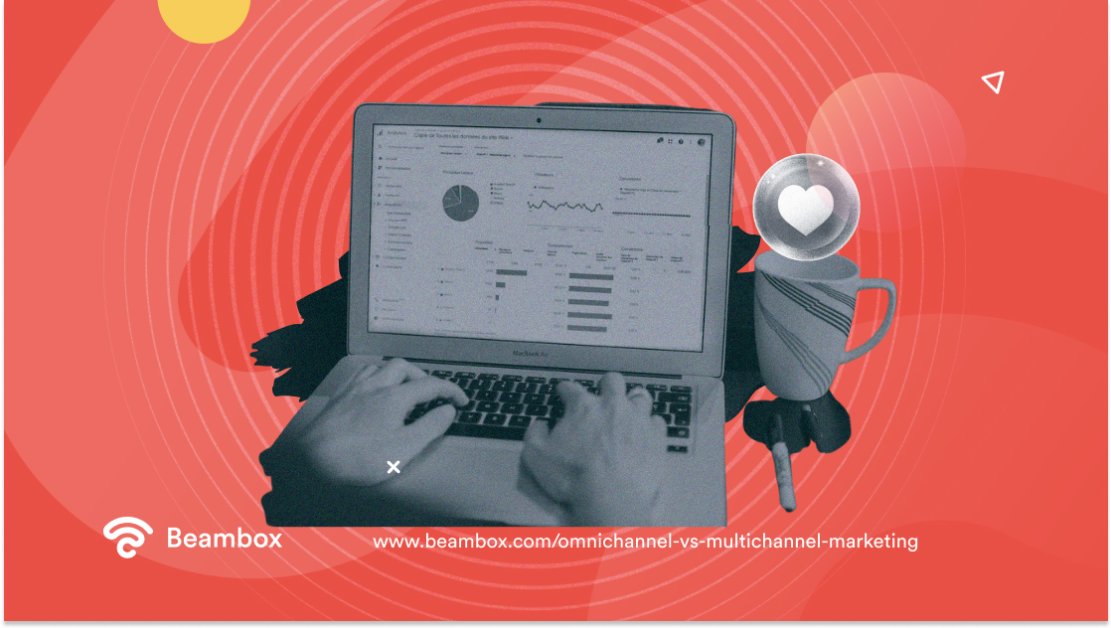Many businesses think that omnichannel and multichannel marketing are the same. This couldn’t be further from the truth. So, it’s time to settle the omnichannel vs multichannel marketing debate.
Let’s assume you’re using all forms of marketing campaigns to promote your business. And your customers are aware of your brand. That’s why they are showing interest and visiting your venue, right? But they aren’t buying from you yet. Is it because your focus is only on marketing your offerings and not on customer interactions? Your marketing strategy should focus on channels to market both the product and the customer.
This article is a guide about omnichannel vs multichannel marketing. Learn what channel you should use for your marketing strategy and when.

Deliver a Seamless Marketing Experience: What Is Omnichannel Marketing?
Omnichannel vs. multichannel marketing is a neverending debate. To come to a conclusion, you should understand both of them individually. So let’s start with, “What is omnichannel marketing?”
Here’s the truth; your marketing is a flop without any customer engagement. So, to connect better with your customers, you need to reach them through all the channels. But how is that related to omnichannel marketing?
Omnichannel marketing helps you achieve a unified marketing strategy and customer satisfaction. Taking it a step further, it is an aggregate marketing approach. It allows you to market your product or services through websites, devices, portals, and other physical platforms.
In short, reaching your customer wherever they stand in their buyers’ journey is possible with this marketing. It enables you to market, sell, and serve your customer personally through different channels. But how does it work?
It encompasses SMS marketing to notify customers about discounts and offers. Or putting an alert notification if they showed interest but didn’t make a purchase. Therefore, it is an aggregate of approaches that create a smoother type of connection. Overall, this marketing approach is a fundamental difference between multichannel vs omnichannel marketing.

Increase Your Marketing’s Reach: What Is Multichannel Marketing?
Since this discussion is a dispute of understanding omnichannel vs. multichannel marketing, draw a line between the two here. It’s important to answer, “What is multichannel marketing?”
As you know, there is a minor difference between the real world and the internet. And people are living in both worlds. Therefore, a single channel won’t do it for you. You need multiple channels to market your product or service.
Therefore, here comes multichannel marketing. The multichannel strategy focuses on marketing your product or service across all channels. It will help you expand your reach and enable you to connect with customers through different channels.
Here, you focus on promoting your product through emails, social media, direct mail, website, billboards, TV ads, etc. Yes, the multichannel approach uses both digital marketing and traditional marketing strategies.
However, you need an efficient management structure in your marketing strategy. It is significant to prevent your multichannel marketing from collapsing. Also, you need to focus on where your customers are moving. So you should clearly define your customer profile and any appropriate trends. Understanding their behavior will allow you to market your offerings according to your customer sentiment.
The promotion of the offering approach is a differentiating point of multichannel marketing vs omnichannel. And both of them seem equally important.
Omnichannel vs Multichannel Marketing: What’s the Difference?
While both marketing strategies have similar principles, how you present your offerings differs. This means the omnichannel vs. multichannel marketing difference is based on your center of attention. Here’s what we mean.
Omnichannel marketing connects you with customers on personal and emotional levels. You can deliver a message right into your customer’s inbox, ensuring a fantastic customer experience. Moreover, you have to unite all your channels here as you market your customer according to their purchasing behavior.
For example, a customer visits your website and browses it for a while but leaves without ordering. You will remind them of their interest by showing ads through Facebook and Instagram Or emailing them a personalized offer such as a small discount.
On the other hand, multichannel marketing focuses on personal branding. You need to market your product, sales, and services digitally and through traditional methods. It helps connect your marketing channels and deliver your product message to customers.
For example, you can run location-based marketing campaigns like ads in newspapers. However, you’ll also need to share content through different social media accounts or using other web marketing approaches. In simpler words, omnichannel revolves around customers, while multichannel focuses on the product.
Omnichannel vs Multichannel Marketing: Which One’s Best for Your Business?
As you dive deeper into understanding omnichannel vs. multichannel marketing, you can see both of them are equally important. But as with all things marketing, which one you should use will depend on your goal. Moreover, customer data collection will define the success of any approach.
Omnichannel marketing focuses on creating a seamless experience for your customer. You might think you must always use this one. But it only works when you want to create a consistent user experience.
The omnichannel approach seems expensive but provides a profitable ROI (return on investment). It allows you to meet customer desires at the right stage at the required time. But if you currently can’t afford omnichannel, multichannel is your trustworthy companion. It will enable you to flexibly market your offerings and increase your brand awareness and reach.
Although, it doesn’t mean multichannel is free of cost. You should have the resources to buy several automation tools to ensure an effective marketing strategy.
When you know what you want to offer but don’t have many indecisive customers, go for multichannel. But when you’re struggling to get customers to purchase, go aggressive with omnichannel. So, omnichannel marketing vs. multichannel marketing implies understanding the right timing for using each.

Omnichannel vs. Multichannel Marketing: Best Strategies for Unified Marketing
You must be planning for omnichannel marketing after the analysis of omnichannel vs. multichannel marketing. So, let’s start with the basics of this marketing strategy.
As mentioned earlier, an omnichannel strategy needs to tick-mark all the marketing channels. This means you have to be alert on Instagram, shoppable posts, e-commerce sites, and your physical store.
Moreover, you should analyze the likes and dislikes of your target customers. To start with, focus on these four omnichannel marketing attributes. First comes the sales strategy. Through a sales strategy, you will understand those channels where your target customers are active. And then, you will target selling your product through your specified channels.
Second comes consistency, as omnichannel strategy is all about providing a smooth experience. Make sure you connect with your customers at an emotional level because customers are 90% more likely to buy from your brand if they have a pleasing omnichannel experience.
The third strategy factor is the fulfillment of the product or service. When you fulfill your customers’ orders as per their needs, it draws chances for repurchase.
And the last is unified operations since omnichannel marketing is about creating a unified channel to market. It’s essential to link your channels in a system and create a successful marketing strategy.

Omnichannel vs Multichannel Marketing: Best Strategies for Marketing on Multiple Channels
You might be thinking omnichannel marketing wins in the omnichannel vs multichannel marketing debate. But the fact is, people love to browse multiple channels to learn more about your offerings. So, let’s elaborate on multichannel retail marketing for you.
Multichannel marketing involves various digital and physical channels. In your multichannel marketing strategy, you can use online as well as traditional marketing methods.
What about running a guerrilla marketing campaign so everyone on the street knows about your brand? Or creating Facebook Ads to get more customer visits? As a result, your business will generate leads and make more sales.
However, a multichannel strategy also involves digital marketing techniques. One tip to add to your strategy is to always optimize your channels. So, you need to iterate until you find satisfying results.
Moreover, make sure you understand your target customers, as they are the only reason for your successful business. So keep in check the number of customers coming and churning. You can also practice behavioral segmentation to understand your customers better.
In short, multichannel marketing allows you to maximize your reach and branding through multiple channels.
Omnichannel vs. Multichannel Marketing: Which One Cost Less?
Omnichannel marketing and multichannel marketing can both be effective at their respective times. But it is necessary to know how you should manage your budget. So, here’s a cost analysis of omnichannel vs multichannel marketing.
Many companies believe that omnichannel marketing is expensive. But that’s where they’re wrong. If done strategically, you can gain a good amount of profit.
True, you will have to invest in automation and data collection tools. Also, you will need to hire multiple marketing and communication experts.
But that never means you have to spend a lot of money. With the right strategy, you can minimize the expenditure on an omnichannel marketing approach. Its cost will depend on your specific business. However, as you need to be proficient during the entire customer journey, you’ll have to spend more than multichannel.
On the other hand, multichannel marketing also requires purchasing automation tools. You will also require to spend money on social media platforms for promotions.
But you won’t be keeping track of the customer journey and nudging them along. So, the expenditure will be between $20k to $40k. But you need to market in the right way, as it can give you a profitable return on investment.
So, technically omnichannel costs more than multichannel. But many of the omnichannel and multichannel tools are similar.
Omnichannel vs Multichannel Marketing: What Are Some Examples of Each?
The best way to understand omnichannel vs. multichannel marketing is to go through some examples.
As you know, omnichannel markets for customers and multichannel for offerings. However, it can take different forms and happen in different stages of the customer journey with a brand. So, here are some illustrations of each marketing for better understanding.
Omnichannel vs Multichannel Marketing: Examples of the First One
Do you think omnichannel marketing is more effective in omnichannel vs multichannel marketing? Here are some examples to make it more clear.
Who doesn’t like a steaming cup of coffee during a frenzied work routine? For this, everyone loves Starbucks. But Starbucks has a constructive omnichannel marketing formula.
You can see a reward option on the Starbucks app to prove it. When a customer gets a free reward card, it is available on all online and offline channels. You can reload and check your card through the website, app, or physical stores. This enables an easy app user experience, and customers want to stop by the next time.
Moreover, one of the largest e-commerce businesses, Amazon, has a powerful omnichannel experience for customers. It provides customer service through a website or app. It also gives customers the friendly experience to choose methods as per their wish.
Omnichannel vs Multichannel Marketing: Examples of the Second One
In this omnichannel vs. multichannel marketing debate, you can see that multichannel marketing is no less important. Here’s an example to prove multichannel is also worthwhile.
As you know, Apple is most people’s favorite for launching advanced electronic products. And the company knows that their customers do not only buy from their website or stores. They also buy from other third party sellers.
So, Apple creates educational and technical guides to spread the understanding of their product. Also, they provide a live experience when a customer comes to visit their store. They create successful multichannel marketing through dynamic visual messaging across channels.

Does Using Both Types Help or Make Things Worse?
Omnichannel vs. multichannel marketing both are worthy of your brand. Both will focus on your brand awareness, revenue generation, and increasing reach.
But if you care about your customer, it’s fruitful to use omnichannel marketing. On the other hand, if you want to create awareness about your offerings, multichannel marketing will do wonders.
However, depending on your business, sometimes the simplest things are the most effective. For example, the most important thing for local businesses is to grow your reputation and provide a fantastic experience. Do you want to automate your marketing campaigns and gather valuable data from your customers? Then, try out Beambox.
Beambox is a WiFi marketing platform that help you grow your business by streamlining the marketing operations. Moreover, it can help you grow and manage your online reputation with just a few clicks. Over 12,000 venues are using Beambox to scale their operations and grow their revenues. Do you want to give it a try? Start your free trial!
Get Started With Free WiFi Marketing
Beambox helps businesses like yours grow with data capture, marketing automation and reputation management.
Sign up for 30 days free